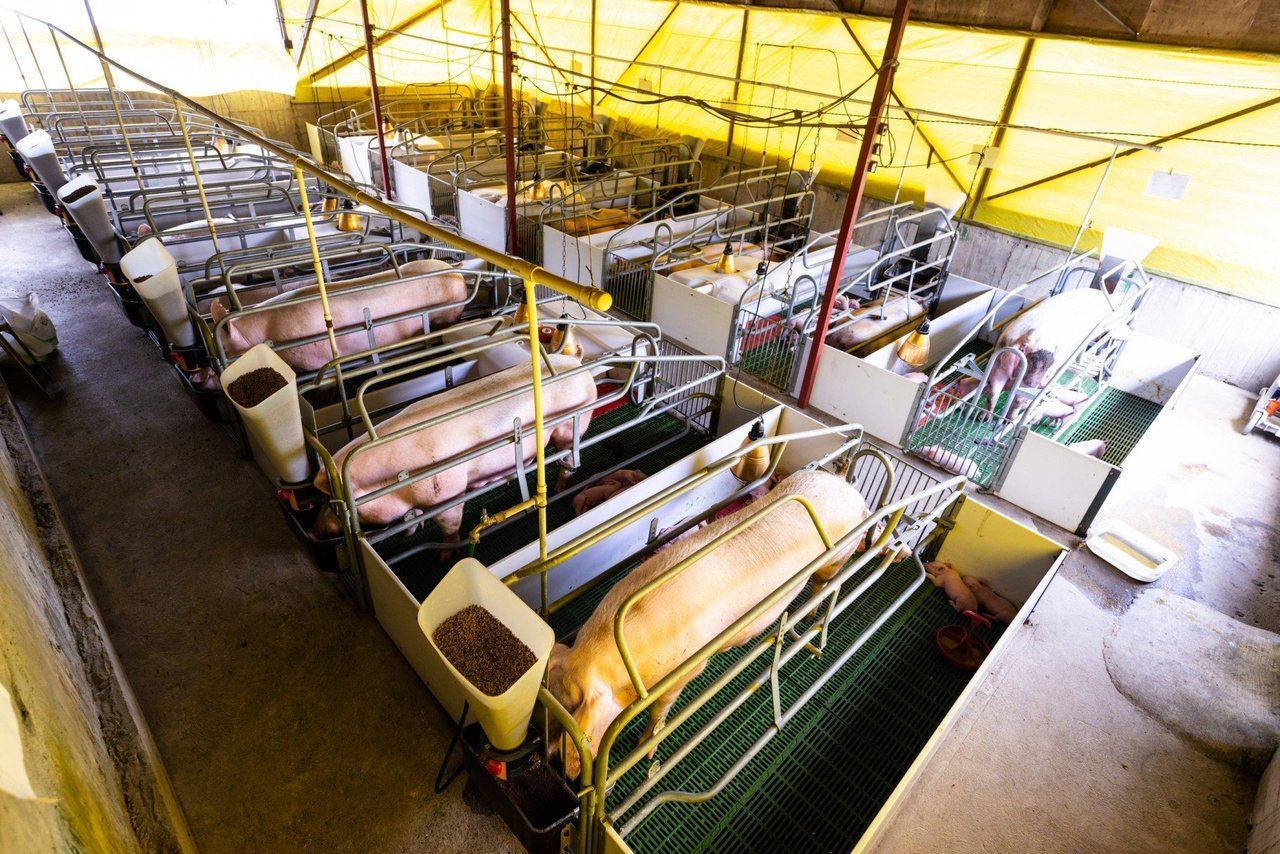Sign the petition to help stop factory farms
The suffering of innocent animals on factory farms is nonstop. Act now to send a message to government: "No more new factory farms in Canada".

Campaign
The majority of animals farmed for food globally are raised on factory farms and it is having catastrophic consequences on animal welfare, our environment, and human health.
Factory farming is a major contributor to deforestation, greenhouse gas emissions, biodiversity loss, and the extinction crisis. In fact, it's responsible for more greenhouse gas emissions than the entire transportation sector combined.
80% of global deforestation is a result of agriculture. Factory farming is the leading cause of habitat destruction, which threatens the survival of wild animals, and is a significant contributor to climate change.
The overcrowded and unsanitary conditions characteristic of factory farms can foster the spread of diseases, putting human health at risk. The use of antibiotics in animal agriculture contributes to antimicrobial resistance (AMR), a growing global health threat.
75% of the world’s antibiotics are given to farm animals to prevent illness in low welfare conditions, often proactively to maximize animal growth and profits. This worsens the superbug crisis, which could result in 10 million human deaths per year by 2050.
Factory farming subjects billions of animals to immense suffering. These sentient beings are confined in cramped, unnatural conditions, often denied access to basic necessities like sunlight, fresh air, or even enough space to turn around and stretch their limbs or wings.
95,000 animals per minute globally are born into a life of unimaginable suffering and cruelty within factory farms. The vast scale of this suffering is not only a moral crisis but also undermines our ethical responsibilities towards animals.
As global meat consumption continues to rise, factory farming consumes vast amounts of water, land, and crops that could otherwise be used to feed people directly, exacerbating issues of food scarcity and resource depletion.
73% rise in meat demand and 58% rise in dairy demand are projected by the Food and Agriculture Organization between 2010 and 2030. This increasing demand for animal products consumes vast amounts of water, land, and crops, resources that could be more efficiently used for direct human consumption.
We are urging companies to embrace better welfare practices for animals. Our work unites us with diverse partners such as government, other NGOs, and industry stakeholders in a shared commitment to elevate animal welfare. Together, we push for stronger corporate policies, and advocate for the humane treatment of animals.
We are on the brink of an environmental crisis. Vast expanses of land, including critical habitats and previously untouched natural ecosystems, are being transformed into monoculture fields for animal feed production. This not only displaces native wildlife and reduces biodiversity, but also contributes to soil degradation, water scarcity and the disruption of local climate patterns. We're challenging these unsustainable practices, highlighting their role in environmental degradation and climate change, and pushing for much-needed reforms.
We bring critical attention to the rampant misuse of antibiotics in factory farming, a practice that fuels the rise of superbugs and poses a significant threat to global health.
When huge numbers of animals are crowded together, suffering and stressed, as inherent on factory farms, they become sick more easily and more infectious to others. The intensive breeding practices of factory farming diminish genetic diversity. All of this increases the risk that new viruses will emerge and spread. Furthermore, habitat loss and ecosystem encroachment from the expansion of unsustainable agriculture practices increases the potential for pandemics. The emergence and spread of highly pathogenic strains of avian flu and swine flu highlights the pressing need for systematic reform in how we treat and raise animals for food.
The suffering of innocent animals on factory farms is nonstop. Act now to send a message to government: "No more new factory farms in Canada".
KFC Canada is responsible for the well-being of millions of chickens. Urge them to take action and make changes that will improve the welfare of chickens in their supply chain.